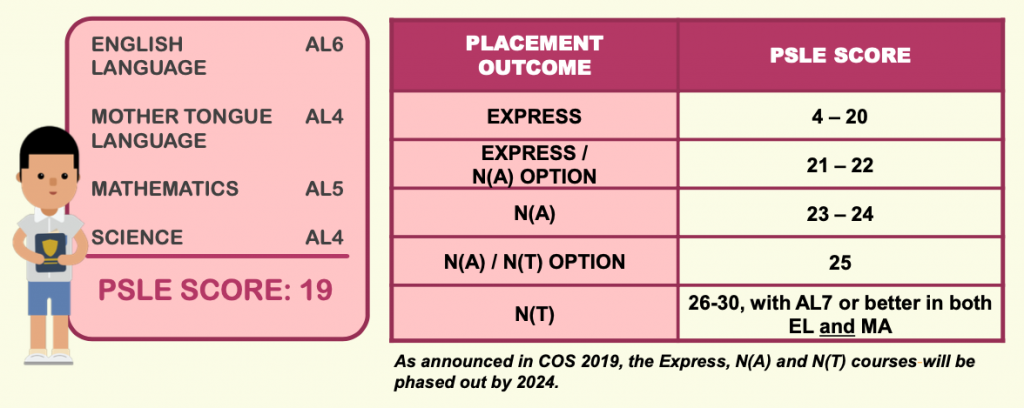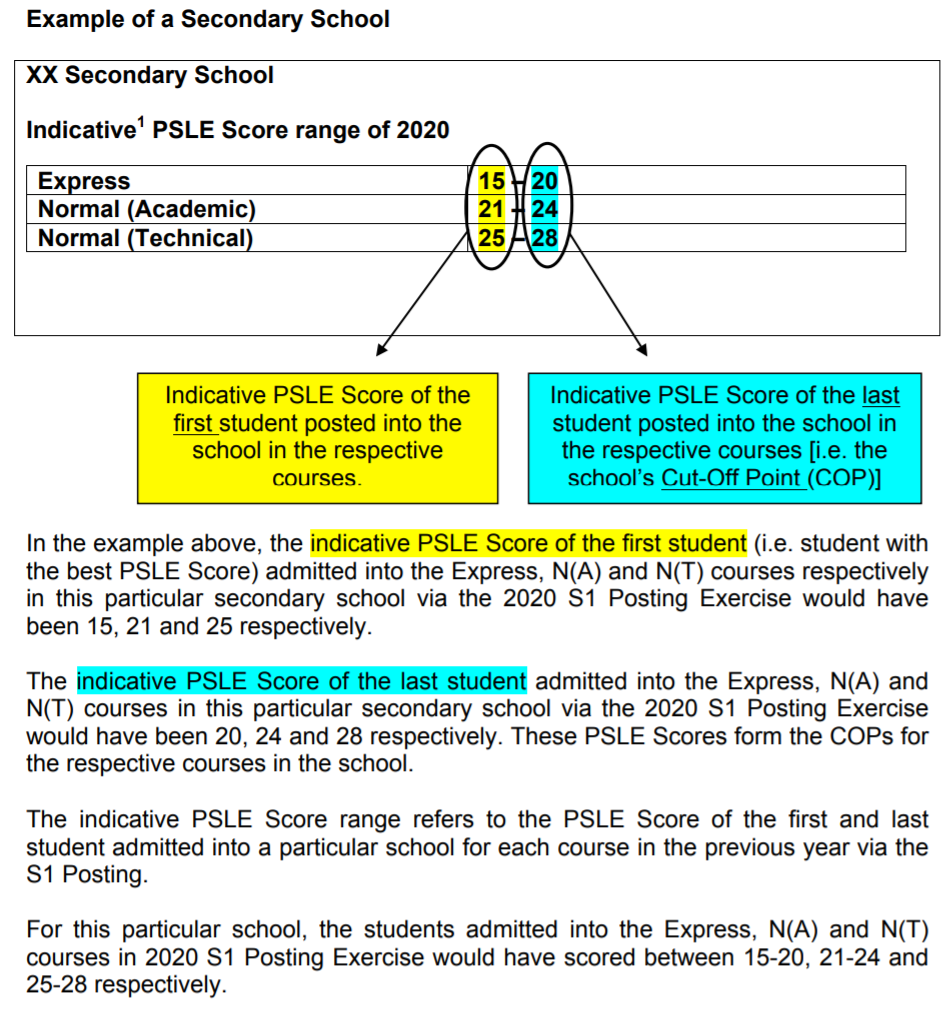Ever since it was introduced in 1960, the Primary School Leaving Examination (PSLE) has been a constant source of stress for Primary 6 students, their parents, and even their dogs who can sense something is up.
Now, parents and students are even more stressed (who would’ve thought it could be possible?) about the examination, but for entirely different reasons.
In 2016, the government announced that it would introduce a new scoring system for the PSLE, saying it would will help children focus on their learning instead of how they compare to others.
But of course, the changes have brought nothing but bigger headaches for parents and students, especially since the new system is being rolled out this year.
If you’ve not heard of the new changes or are not quite sure what they mean, have no fear, Goody Feed is here!
Here are ten facts about the new PSLE scoring system put so simply that your stressed-out dog will be able to understand it.
1. Students Will Be Graded by Individual Performance, Not How They Do Relative to Their Peers
Previously, students sitting for the PSLE were graded based on a T-score system, which measures a student’s academic performance relative to his peers. So, a student may score well for their subjects but end up with a low T-score because their peers did better.
Sounds unfair, doesn’t it? Well, the Ministry of Education (MOE) certainly thinks so.

Under the new scoring system, students will be scored based on their individual performance, so that it will reflect their own level of achievement.
This is part of MOE’s efforts to shift away from an over-emphasis on academic results, the ministry said.
2. The T-Score System Will Be Replaced by Achievement Levels
Thus, the PSLE T-Score will be replaced with wider scoring bands known as Achievement Levels (ALs).
Each PSLE subject will be scored using 8 ALs, with AL 8 being the lowest. Students who perform similarly will be placed in the same AL for each subject.

You may have noticed that the upper scoring bands have a narrower raw mark range. There’s a reason for this.
According to MOE, around half of the students taking standard subjects today score above 75. So, these narrower mark ranges are needed to avoid having too many students achieving the same PSLE score, which may result in more tie-breaking to determine secondary school postings.
MOE said the new scoring system is designed to reflect students’ stages of understanding and mastery of a particular subject, rather than how they performed relative to their peers.
3. The Total PSLE Score Will be the Sum of 4 Subjects, With 32 Being the Highest
Unlike with the T-score system, you don’t need to be a nuclear physicist to calculate your child’s total PSLE score. (Does anyone remember the formula needed to calculate your T-score?)
The total PSLE score will simply be a sum of the scores for all four subjects. The range of possible scores will be 4 to 32, with 4 being the highest and 32 the lowest.
Students will qualify for the Express stream if they get a PSLE score of 20 or higher.
Here’s an example:

4. Students Who Take Foundation Subjects Will Be Graded in 3 Scoring Bands
Under the new grading system, pupils taking subjects at the Foundation level will be assessed under three scoring bands instead of five.
They will receive grades of AL A to C, which are pegged to the corresponding Standard-level subjects grades of AL6 to AL8.
For those who don’t know, subject-based banding was introduced in 2008, allowing Primary 5 and Primary 6 students to take subjects at two difficulty levels, Standard or Foundation.
With this programme, students can take subjects at a level that meets their learning needs.
5. Students Who Take Foundation Subjects Can Still Qualify for the Express Stream
Even if your child takes Foundation subjects, he will still be able to qualify for the Express stream.
They will need to take at least one Standard subject out of the four to qualify, and must meet the score criteria.
MOE advised pupils to choose the Standard or Foundation level depending on their aptitude for and ability in that subject, rather than whether it will help get them into the stream of their choice.
6. Those Who Don’t Qualify For Higher Mother Tongue Can Still Take the Subject If They’re Interested
Under the new AL grading system, pupils will be able to take Higher Mother Tongue language subjects in secondary school if they attain:
- A PSLE score of 8
- A PSLE score of 9 to 14, as well as attain 1 or 2 in their Mother Tongue language subject or a distinction or merit in their Higher Mother Tongue language subject
Those who don’t meet the criteria can still qualify for Higher Mother Tongue subjects if they are assessed to have high ability and interest in the languages.
7. Students Will Have a Wider Range of Secondary Schools to Choose From
Since there will only be 29 possible PSLE scores now, compared with more than 200 possible T-score aggregates under the old system, students will not be as finely differentiated.
Consequently, schools will also be less differentiated by cut-off points (COPs), which means that students will have a wider range of secondary schools to choose from.
There is also a good spread of schools with a range of COPs across school zones.
8. COPs Are Based on the PSLE Score of the Last Student Admitted Into the School
On Tuesday (27 Apr), MOE released the indicative PSLE score ranges for individual secondary schools under the new system.
As demonstrated in the table below, the indicative scores are the scores of the first and last student who would be admitted into each school under the new scoring system, based on the previous year’s cohort’s results and school choice patterns.

Just like the previous T-score aggregate system, schools’ score ranges may vary from year to year.
You can check out the score ranges for each school here.
9. Higher Chinese Students Will Only Have an Advantage if They Apply to Special Assistance Plan (SAP) Schools
Your child will have a posting advantage for admission to secondary schools if they take Higher Chinese, but only if they’re applying to a Special Assistance Plan (SAP) school.
Higher Chinese results will be denoted as D for Distinction, M for Merit, and P for Pass.
Like other schools, the indicative PSLE score ranges of SAP schools include the Higher Chinese grades of the first and last student admitted in the previous year.
And irrespective of whether a student took Higher Chinese, they will be admitted into an SAP school as long as they score better than the school’s cut-off point.
So if a SAP school’s cut-off point range is 5 (D) to 12 (P) and you scored 10, you would gain admission to that school even if you didn’t take Higher Chinese.
10. Ranking the Schools by Order of Preference Will Be More Important
Secondary One posting will continue to be based on academic merit. Students will submit a list of six schools in order of preference.
So what happens if two students with the same score are being considered for the last place in a school?
Well, it’s a fight to the death, of course, Hunger Games style.
Just kidding. With this new scoring system in place, ranking schools by order of preference may actually have a bearing on which school your child ends up in.
It will be one of the three tie-breakers in place in the event of a tie:
- Citizenship – Priority will be given to Singapore Citizens, then Singapore Permanent Residents, then International Students.
- Choice order of schools – A new tie-breaker introduced this year, priority will be given to the student who indicates a certain school as a higher choice.
- Computerised balloting – If nothing else works, a computer will decide their fate.
If you (or your stressed-out dog) still have some doubts about the new scoring system, you can head to MOE’s website to learn more.
Feature Image: Donal Keane / Shutterstock.com




